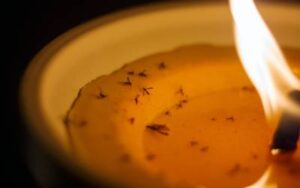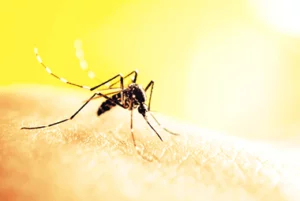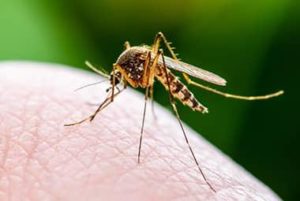There have been many examples in the past of how technology has driven the pest control industry and how the pest control industry has driven some great technological advances. Lots of research that was done early in the field of extermination was closely tied to American military efforts, particularly during the World Wars. American soldiers went to terrifying places in unfamiliar environments, but sometimes, one of the unexpected threats to them involved pest pressure.
If you have ever used a mosquito spray before a picnic, you have reaped the benefits of that war-time research. Most mosquito sprays contain DEET, a chemical that was developed during WWII when American troops encountered the health hazards associated with working in an environment that fostered mosquitoes carrying malaria. DEET helped to keep those soldiers (and thousands of people since then) safe, but now researchers are working toward replacing DEET with a naturally-occurring substance.
The problem with DEET is that it is only a short-term solution. As you may have realized, bug spray has to be re-applied frequently to be particularly effective. It often has a somewhat unpleasant smell, and the chemical combination in DEET products can damage some plastics and fabrics, making those sprays impractical in many situations.
Now, however, researchers are delving more deeply into the mechanics behind the effectiveness of DEET. They have discovered which portion of the mosquitoes’ antennae responds to the DEET, and they have studied other substances that can be used to trigger the nervous system response that makes the mosquitoes retreat. They have also cleverly narrowed their searches to natural substances that can be easily acquired. Four compounds have been selected for further testing, and all the early signs are very positive. Three of the four substances are actually already approved by the FDA for consumption as food products. They have been used for this because they all naturally give off a mild smell like grapes. The hope is that these compounds will eliminate the need for DEET while also correcting many of its defects.
In other good news, researchers have also found that the trigger point on the mosquitoes’ antennae that makes these compounds effective is quite common in many species of insects. It’s possible that this research could start off revolutionizing the bug spray industry and could, perhaps, transform the pest control industry as well. We’ll wait around for more information and keep you informed as new developments arise.
DEET Bug Spray Is Being Replaced By Natural Substances in Knoxville TN
Serving East Tennessee since 1971


